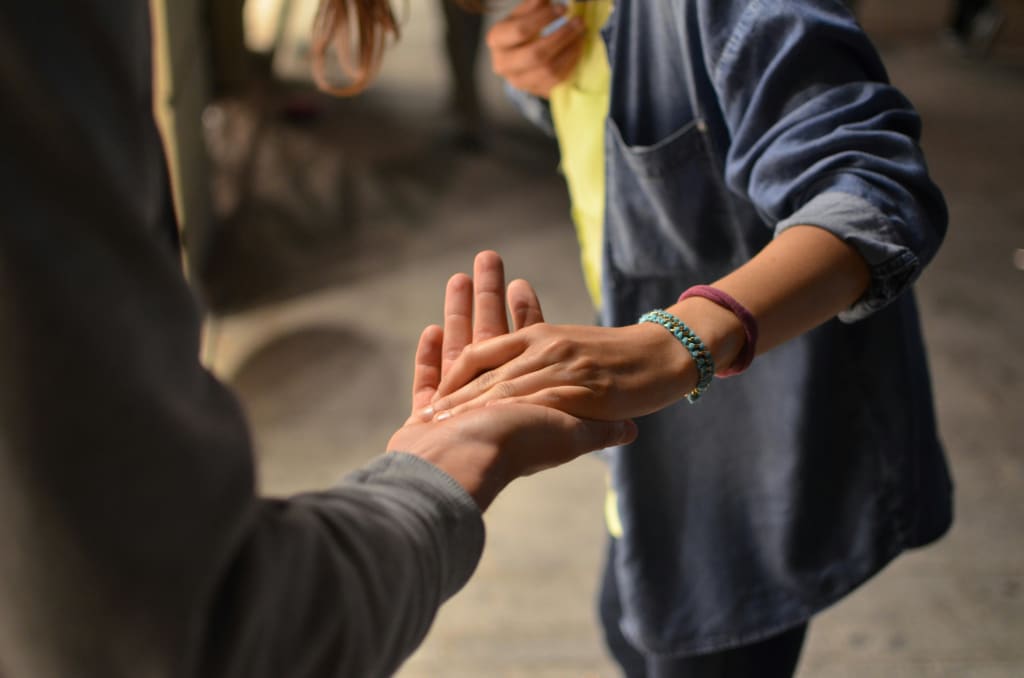One volunteer uses community projects to investigate her passions.
The kindness of North Macedonia is well-known. When you visit someone's house, you always leave with a bag of freshly picked food and an apparently unending helping of tavche gravche (beans on tava). Elizabeth Biron, a Peace Corps volunteer, is committed to emulating that generosity by providing educational help.

'Liz,' Elizabeth, initially came to North Macedonia in 2019. In a small village close to the Sharri Mountains, she co-taught English to elementary school pupils as an Education Volunteer.
"Everyone has the right to a quality education, and it is an honor to give others one." I can give back since I gained from having a quality education. Being able to speak English usually gives you a lot more opportunities because it is a worldwide language. Liz said, "I want to provide kids a solid foundation and help them develop their skills.
Liz's tenure was cut short by the epidemic just as she was forging unique connections and felt at home.
"My first service was filled with all those small moments, largely because of my host family, when I felt like I belonged. I had joked with my host family that I would only be gone for a week, but of course I would be gone for much longer. I seem to recall that while we were saying our goodbyes, I promised to come back because of the things we had done together.
Liz's mother discovered Peace Corps North Macedonia's Virtual Service Pilot program through a social media post. Liz was familiar with the English club at a youth and community center from her Peace Corps pre-service training (PST), and there was a short-term virtual engagement available to support it.
The youth center has been offering non-formal learning opportunities in areas including artistic expression, leadership, English as a Second Language, financial literacy, politics, and professional development to local youth since it launched in 2018. Liz was eager to give back to the community and was aware of the community center, but she wasn't sure if her online involvement would have the same significance as her in-person work.
“I [wondered] what is [it] going to be like being virtual? Will it be any different? I think we have this assumption that [the Virtual Service Pilot] will feel more distant, or it won't feel as genuine or real because you're not in the same room. But I truly did form deep friendships with my counterparts and the students. [The relationships I built] didn't feel any less real than the ones I made in person,” Liz shared. “There's a lot of ways to connect with someone a thousand miles away. Service is about the relationships you form, and you can do that no matter where you are.”
For 13 weeks, a projector brought Liz, who was based in Atlanta, Georgia at the time, back to her former country of service. Liz credits her counterparts, Elton Jashari and Renata Smilkoska, for fostering a safe space for students to fearlessly participate and learn.
“My advice for learning English through non-formal education is to utilize a variety of methods to make the classes engaging and fun for participants. We made English learning fun by using games and topics such as music and sports that the participants would be interested in outside of the classroom. When students are having fun, it helps them stay engaged and motivated,” explained Elton.
The club incorporated games to build the students’ English vocabulary and comprehension skills. One popular game involved one student donning a blindfold and letting the other students verbally—and in English—directing them to an object in the room.
Renata shared why the youth center values its partnership with the Peace Corps: “Peace Corps Volunteers and Participants bring diverse skills, cultural understanding, and a commitment to make a positive impact on the lives of others. Working with the Peace Corps is rewarding for our organization and communities as they contribute to development, cross-cultural exchange, and capacity building.”
Liz says that her virtual engagement made just as much of an impact on her as it did on the participating students, stating it reminded her of the meaningful connections built during service, particularly with the local youth.
In 2022, Liz returned to North Macedonia to resume and complete her service a Peace Corps Volunteer – this time collaborating with four English teachers at the high school. She also leads an after-school English club for younger students on Wednesdays and is planning to launch a boys and girls summer camp with another Volunteer. The English club she worked with virtually continues today, but with support from another in-person, two-year Volunteer.
Serving in-person and virtually with the Peace Corps not only provided Liz with intercultural understanding but also allowed her to explore her various passions and interests in ways she hadn’t expected.
Take the community’s robotics club for example. Liz will be the first one to admit that science, technology, engineering, and mathematics (STEM) are not her expertise, but like many Volunteers, Liz did not hesitate to support when her current community asked.
Each week, Liz asks the robotics club what they want to learn. She then conducts independent research and prepares a lesson to fulfill that curiosity the following week. So far, she has introduced the students to Virtual Reality (VR) headsets, discussed how mobile apps leverage artificial intelligence (AI), and explored the role of cybersecurity.
“I’m hoping to get some old computers for the kids to practice assembling and disassembling. That would give them practical experience with motherboards and circuitry,” explained Liz.
The community center nearby was also looking for extra hands to establish a garden and build capacity among community members to maintain and grow it. Unlike the robotics club, Liz felt confident in her existing gardening skills. In the U.S., Liz was a certified master gardener, which she humbly states is, “just a fancy title for when you have two city-approved gardens.”
“This week I’ll be teaching the basics of composting and how to start seeds indoors for winter. We’ll clear out the section of where the garden will be, too.”
Liz shares gardening duties, such as watering and regular maintenance, with local adults in the community. She is excited that the gardening group will gather to prepare ajvar, a classic Balkan food much like a red pepper spread.
“We’ll roast red peppers on an open grill outside then peel them and mix with eggplant, garlic, oil, and any other vegetables. When you make it, you make a metric ton, so you can store it all winter.”
Liz knows her time in the community is limited, so she is soaking in each day. And while she’s unsure what the future holds beyond her close of service in 2024, she knows she’ll take a bit of North Macedonian culture wherever she goes next.






Comments (2)
This story was not written by Sabrina and was taken directly from the Peace Corps website. https://www.peacecorps.gov/stories/one-volunteer-explores-her-passions-through-community-projects/
Great job.